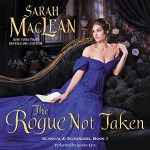Knight of Desire is a medieval romance set in a period that I haven’t come across very often in historical romance – the time immediately following the usurpation of the English throne by Henry Bolingbroke (Henry IV). This story of a young woman who is forced into marriage not once, but twice, is played out against the backdrop of great political unrest in England, and most specifically, along the Western Marches, the borders between England and Wales. The historical detail has clearly been well researched and I especially enjoyed the author’s portrait of the future King Henry V, who, at the time this story takes place, is a youth of eighteen and already a seasoned soldier.
Lady Catherine is married at sixteen for her money and lands. Her much older husband, Lord Rayburn, takes out his frustration over his bedroom inadequacies on her and beats her with increasing violence to the extent that she fears for her life. Unable to stand up to him physically, she works secretly to ensure his downfall by spying on him and passing on information of his treasonous activities to the king. Given Rayburn’s treatment of her, it’s no wonder that her reaction to the news of his death in battle is one of overwhelming relief.
Unfortunately for Catherine, she is not destined to remain a widow for long. Even though she had been instrumental in exposing Rayburn as a traitor to the crown, King Henry is mistrustful of a woman who would betray her husband so easily and is of a mind to have her imprisoned in the Tower of London to await execution as an accessory. Fortunately for Catherine, Prince Henry (Harry) intercedes on her behalf. They grew up together and have remained friends over the years and Harry, knowing Catherine to be loyal, persuades his father to clemency. The king decrees that Catherine’s fate shall be decided by Sir William FitzAlan, the man responsible for the defeat of the rebel forces and the man to whom Henry has gifted Rayburn’s lands and castle. FitzAlan can marry the lady or send her to the Tower as he sees fit.
Fortunately for Catherine, FitzAlan is a chivalric and honourable knight and he determines he will marry her, sight unseen. Given that her last husband had been chosen for her by the previous king (Richard II), Catherine is naturally not especially sanguine about marrying the choice of the current monarch. She is surprised when William turns out to be young, handsome, and kind. Given she has no alternative but to agree, they are married before the day is out.
Having suffered greatly at the hands of her first husband, Catherine is naturally reluctant to give herself to William, in either body or heart. But as time progresses, she begins to see that he is nothing like Rayburn and finds herself becoming attracted to him. The romance between the couple proceeds by fits and starts; just as it seems they are coming to a greater understanding of each other, something happens to set them back – something – it has to be said, that usually has to do with William’s inability to trust his new wife.
This is the cause of almost all the conflict between the couple. Although external circumstances come into play later in the book (when the threats to Catherine’s life come thick and fast, giving us barely time to recover in between), for the vast majority of it, the spoke in the wheel of Catherine and William’s marital happiness is due to internal conflicts and is frequently down to William’s amazing ability to misinterpret his wife’s speech and actions. It’s true that in the early stages of their marriage, Catherine is as reluctant to trust him as he is her but, while she does start to open up and to trust him, he is still plagued by the nagging doubt put there by the king and fostered by one of his most trusted men – she was capable of betraying her first husband, so why not him also?
William is clearly a man of honour and intelligence. He’s strong, courageous, attractive and considerate of his wife when he sees that she’s terrified at the thought of sleeping with him. He’s good with her young son and treats him as if he were his own but is almost crippled by jealousy and mistrust which make it impossible for him to see clearly where Catherine is concerned. For the most part, he’s a likeable character – but after the third or fourth time he accused his wife of not being truthful, I wanted to throttle him.
There is, however, an explanation for William’s propensity to mistrust in his backstory as his own family betrayed their king while William alone remained loyal. I can see that he might have trust issues as a result, but given the similarities between his situation and Catherine’s (both of them closely related to traitors, yet refusing to join them), he should surely have been able to understand her predicament rather than continue to expect her to betray him at the first opportunity.
But it’s not all bad. As the story progresses, the couple find themselves coming to a better understanding of each other and Catherine is finally able to let go of her fears to discover that there is pleasure to be found in her husband’s bed. For a while, it seems as though things are looking up in their relationship, and the pair are certainly not reticent about giving way to their new-found passion – but William just can’t help sticking his foot into his mouth and breaking Catherine’s heart a little more each time he does so.
There is a lot to enjoy in Knight of Desire, not least of which is the excellent period feel and the writing, which is engaging and stylish. While the love story seems to be constantly taking one two steps forward and one step back, there is an emotional connection between the couple that worked well, and the love scenes were sensual and well-written. There are also a number of well-developed secondary characters, not least of which is Stephen, William’s younger brother (and hero of the next book, Knight of Pleasure), and Harry, the future King Henry V.
Derek Perkins is a new-to-me narrator, and for the most part, I enjoyed his performance and would certainly listen to him again. His reading is well-paced and – with one exception – his characters were all appropriate and clearly delineated. His female characters are portrayed using a slightly higher pitch and softer tone, and he makes good use of and successfully sustains various regional accents when voicing the servants and soldiers who populate the story. Even though he does not adopt a specifically Welsh accent for Owain Glyndwr and Maredudd Tudor, he broadened his tone and added a depth and power to the quality of his voice that skilfully evoked the musicality so often associated with the Welsh.
But.
And I’m afraid it’s a very big “but”. Such a big “but” that it caused me to substantially downgrade my rating for the narration.
The hero’s voice is completely wrong.
William FitzAlan is described as being a large man – tall, broad-shouldered and well-muscled. The story is set principally in the north of England, so it makes sense that William would have a northern accent and I have no problem with that.
I do, however, have a problem with the fact that William sounds more like Alan Bennett than a big, brawny northern warrior, which, incidentally, made some of the love scenes very difficult to listen to without giggling or wanting to stuff my fingers in my ears! Not only does Mr. Perkins’ interpretation not fit the character as he is described, he doesn’t sound at all heroic or, well, manly. And we romance listeners like our heroes to sound heroic and manly.
I admit, the last big, brawny northern hero I listened to was Ruck in For My Lady’s Heart, as performed by Nicholas Boulton, which is, of course, an incredibly tough act to follow. But it’s very difficult not to make such a comparison when the characters themselves are similar in a very basic way – courageous medieval knights from the English/Welsh borders – and when one interpretation is so very wide of the mark.
This is a glaring error in a performance I otherwise enjoyed and thought was very good, especially for a narrator who is new to the genre. I know that many voice-artists now work under their own auspices, without benefit of directors or producers on hand, but I find it really hard to believe that there wasn’t someone involved in the process who could have picked up and identified this problem in the early stages of production. I freely admit to knowing little about the ins and outs of audiobook production (although I worked in the music industry for a number of years, the production of recorded music works very differently) but there has to be someone, somewhere, who is responsible for such a thing as “quality control”. And if there isn’t – there ought to be.
I struggled to grade this audio for narration, because Mr. Perkins’ performance of everything else was very good and easily deserving of a B grade. But in a romance, the vocal characterisation of the hero is of such vital importance that it’s impossible for me to rate it that highly. I think this narrator has potential, and I may listen to the next book in the series to see if he has made any adjustments to the way he presents the hero of that story, but his portrayal of this one fell sadly far short of expectations.
Caz
Narration: C
Book Content: B
Steam Factor: Glad I had my ear buds in
Violence: Minimal
Genre: European Historical Romance
Publisher: Tantor Audio
Knight of Desire was provided to AudioGals for review by Tantor Audio.





1 thought on “Knight of Desire by Margaret Mallory”
Comments are closed.